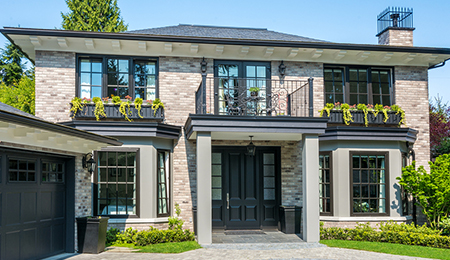I’m often asked if there are really tax benefits to homeownership, and today, CPA Kelly Bullis is here to help lay out what those benefits are.
For one, if you rent a home, you don’t get any tax deductions for that property. If you buy a home, you can deduct the mortgage insurance and interest, as well as property taxes if you buy the house for less than 80% of the loan-to-value, as itemized deductions. With the new Trump tax law, the standard deduction for married couples has been raised to $24,000, which you can deduct with no questions asked.
If you’re a charitable person—perhaps you belong to a church or you just like to give to causes—your donations, mortgage interest, property taxes, and even medical expenses would push you over that $24,000 standard deduction, giving your a bigger window.
Another benefit applies to those who are self-employed. Those who work from home pay two taxes: First, there’s the federal income tax, in which you’re probably in the 25% bracket; and then there are also the self-employment taxes, which is another 15.2%. That means for every $1 a self-employed individual earns, they’re paying 40% or more in taxes.
Self-employed individuals get to deduct a portion of their mortgage interest, mortgage insurance, homeowners insurance, property taxes, utilities, repairs, maintenance, and even a part of the original purchase price. Added up, deducting 40 cents out of every dollar of taxable income could amount to major savings.
“When you own a home, remember that you’re living in an investment.”
Further still, homeownership benefits the elderly. As we get older, our bodies don’t work as well as they used to. If you own a home, you can make improvements to that home for medical purposes if you get a recommendation from your doctor—this can be anything from installing a wheelchair-accessible ramp to a walk-in bathtub. These expenses can also be deducted. Most landlords won’t let you do that to a rental property, so these benefits allow you to stay in your home for longer.
Homeowners also get to benefit from appreciating home values. Kelly has a friend who purchased his house in the 1970s for $40,000; today, that house is worth $600,000 with the improvements he’s made over his lifetime there. If he sold the house, he and his wife would get up to $500,000 of the gain on the sale of that house tax-free. For single individuals, that figure would be $250,000, which is still big.
When you own a home, remember that you’re living in an investment. A lot of people are fearful of buying a home because of the rising interest rates, which are now close to 5%. However, you need to live in the home for two of the past five years; buying now means that you’ll be able to benefit two years down the road, whereas if you waited to buy, the higher rates mean that you’ll pay that much more for the same home.
As a last tip, Kelly mentioned something that sometimes gets people overwhelmed: imputed rent. This usually works best for high-end tax clients who own multiple real estate properties and view their home as one of their rental investments. It’s a bit complicated, so if you’re in this situation or if you have any other tax-related questions about homeownership, feel free to reach out to Kelly Bullis at (775) 882-4459, kbullis@bullisandco.com, or visit BullisAndCo.com.
I appreciate Kelly taking the time to share his advice with us; it’s extremely beneficial to understand what benefits you stand to gain by owning a home. If you have any questions about real estate, feel free to reach out to us. We’ll be happy to answer your questions in a video so that others can learn the answers as well. Hope to hear from you soon!



